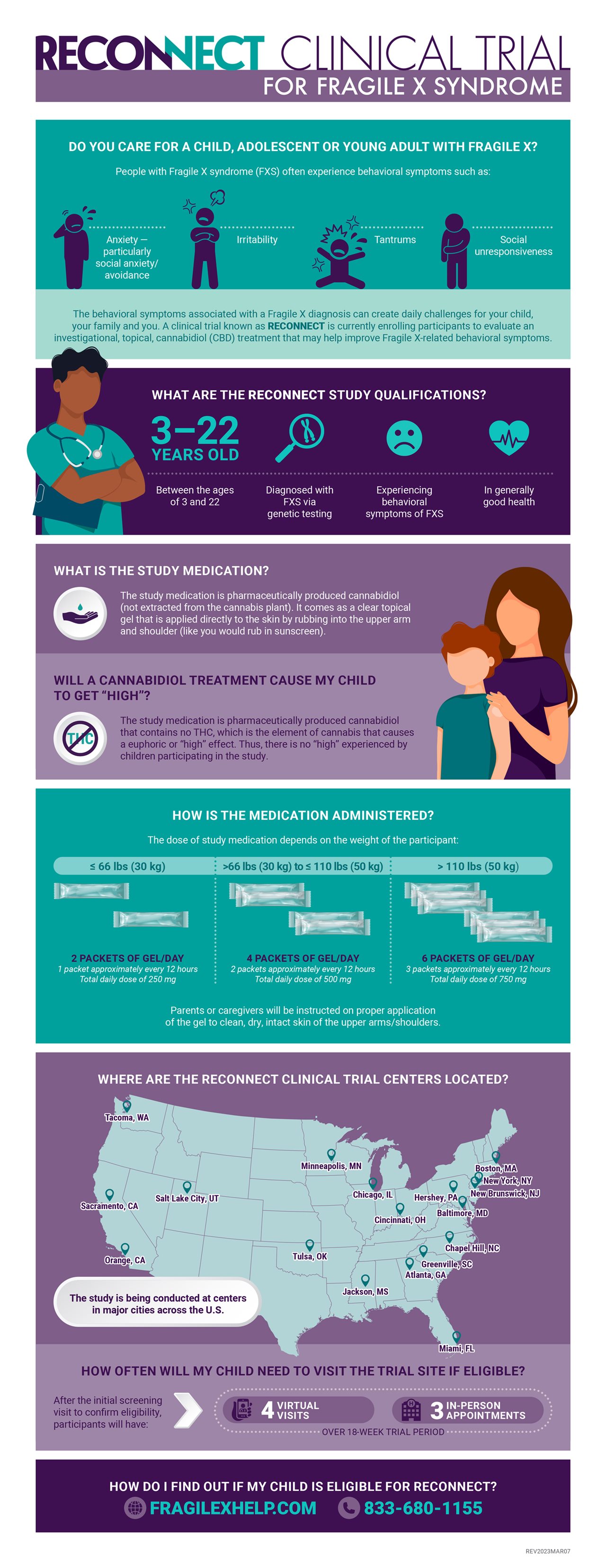
(BPT) - Patient Advocate and Former U.S. Congressman Gregg Harper Shares his Family's Journey with Fragile X Syndrome and Discusses the Importance of Clinical Trials to Advance Treatment Options
It is said that as parents, we try to teach our children all about life. But ultimately children are the ones that teach their parents what life is all about. For former Congressman Gregg Harper that sentiment has become the driving force behind his political and patient advocacy platforms and his life's work. For Gregg and his wife, Sidney, parenting their son, Livingston, and daughter, Maggie, has always been their number one priority. So, when they noticed Livingston's milestone delays as an infant and toddler and then other signs of development delays, they began what would become one of the most challenging yet rewarding experiences of their lives - learning from Livingston along the way.
Over the course of four years, Gregg and Sidney ran from appointment to appointment, consulting countless experts and having Livingston tested and evaluated by pediatricians, neurologists, psychologists and every specialist in between. They were determined to find out what was happening with their son and there was no amount of time or energy that would stop them.
It was ultimately a stroke of luck that led to Livingston's diagnosis with a rare neurological condition known as Fragile X syndrome. The Harpers' neighbor was the head of special education for an area school district and had attended a seminar about developmental delays and special education. There she learned about a disorder known as Fragile X. When she returned home, she immediately shared what she learned with Gregg and Sidney thinking it could be the elusive diagnosis they were seeking for Livingston. Ultimately, genetic testing revealed that Livingston did indeed have Fragile X syndrome.
'When someone in your family is faced with a rare disease diagnosis such as Fragile X, and especially when it is your child, at first your world can seem like it's collapsing,' said Gregg. 'But after grieving what you thought 'might have been,' it is so important to remind yourself that a diagnosis does not have to define or limit your child's life. As parents we chose to pour our energy into doing everything we could to ensure that Livingston could live the most fulfilling life possible.'
Fragile X is a genetic disorder that causes symptoms including, but not limited to, developmental delays, intellectual disabilities, learning and behavioral issues, physical abnormalities and anxiety. It is estimated that Fragile X affects 1 in 8,000-11,000 females and 1 in 4,000-7,000 males worldwide.1
During his younger years, Livingston tried many different medications based on what was available at the time. But unfortunately, their side effects created frustrations for Livingston and his parents. Over the years, he also received occupational therapy and speech therapy. While these interventions helped, Livingston continued to experience sensory overload issues and was prone to self-stimulatory behavior such as flapping his arms and hands when he was overstimulated.
'When Livingston was diagnosed and as he grew, there weren't many treatment options available and we were committed to trying everything we could while also ensuring our child was still able to be who he was born to be,' said Gregg. 'While Livingston never had the opportunity to participate in clinical trials studying investigational treatment options, we strongly encourage individuals to support research of investigational new therapies by participating in clinical trials.'
For Gregg, taking control started in early 2009, when he issued a public service announcement, as part of his political advocacy platform, declaring his commitment to ensuring increased awareness and funding to help families who are blessed with a child with Fragile X. Since then, he has worked with higher education institutions like Mississippi State University (MSU) to create inclusive programs within the higher education system that guide students with disabilities through a college career. Livingston benefitted from his father's commitment and graduated from Mississippi State University in 2013 from the ACCESS Program. Then, in 2010, Gregg's work with George Mason University (GMU) expanded to include the launch of an internship program with MASON LIFE students and six U.S. House of Representative offices in Washington, D.C.
'After Livingston's diagnosis and watching him face the challenges of his disorder, my platform in Congress became an opportunity to help educate others about Fragile X and other intellectual disabilities,' said Gregg. 'My son's perseverance and our family's commitment to providing him with every opportunity possible inspired me to advocate for the thousands of children and families struggling with the same or similar experiences.'
Over eight years, the special needs students in the Mason Life program at GMU and within Congress grew to work as interns across more than 300 congressional offices from both the U.S. House of Representatives and Senate. In December 2018, Gregg and Livingston were honored at a reception along with other student interns and learned the program was being renamed to 'The Gregg and Livingston Harper Congressional Internship Program for Individuals with Intellectual Disabilities.'
Today, Livingston is 33 years old and doing well, despite continued social avoidance behaviors which he manages to the best of his ability. He has a job and regularly spends time with lifelong friends.
Gregg notes, 'If my wife and I could give one piece of advice to parents of children with Fragile X or any intellectual disability it would be to never stop fighting for your child's right to live a life without limits. After the devastation and disappointment, look for the opportunities to learn from your child's journey and the community it can bring your child and family into.'
He concludes, 'Livingston is an example of a child who has never given up despite his diagnosis and associated challenges. We've learned so much from him!'
To learn more about Fragile X syndrome and an ongoing clinical trial of an investigational treatment, visit FragileXHelp.com for more information.
Content sponsored and provided by Zynerba Pharmaceuticals, Inc. Gregg Harper has partnered with Zynerba to increase awareness of Fragile X syndrome and highlight the vital role of clinical trials in discovering and studying new investigational treatments for rare diseases.
1. https://fragilex.org/understanding-fragile-x/fragile-x-101/






